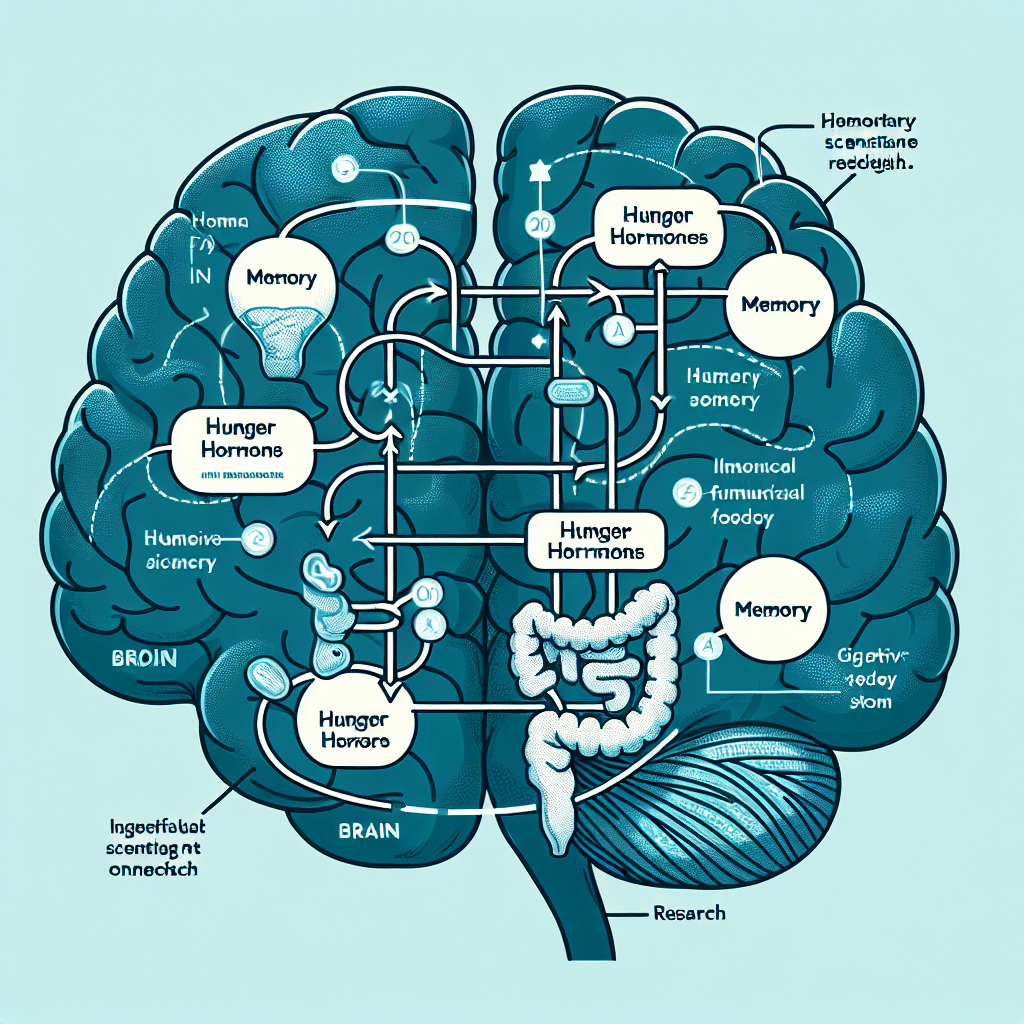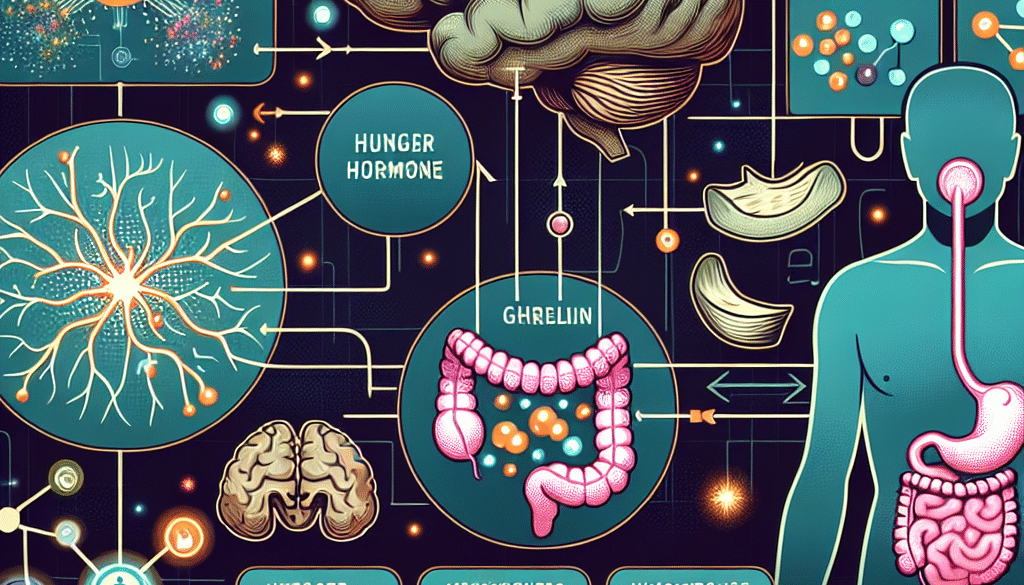Gut-Brain Axis: Hunger Hormone and Memory Link Research
-
Table of Contents
- Gut-Brain Axis: Exploring the Hunger Hormone and Memory Connection
- Understanding the Gut-Brain Axis
- The Role of Hunger Hormones
- Link Between Hunger Hormones and Memory
- Case Studies and Research Findings
- Implications for Diet and Cognitive Health
- Statistics and Trends in Gut-Brain Research
- Conclusion: Key Takeaways on the Gut-Brain-Hunger Hormone Connection
- Enhance Your Cognitive Health with ETprotein’s High-Quality Protein Products
Gut-Brain Axis: Exploring the Hunger Hormone and Memory Connection

The human body is an intricate network of systems that communicate continuously. Among these, the gut-brain axis represents a bidirectional communication pathway that not only affects our digestive health but also has profound implications for our cognitive functions, including memory. Recent research has shed light on the role of hunger hormones in this complex interplay, suggesting that what we eat and when we eat can influence our brain’s ability to remember and learn.
Understanding the Gut-Brain Axis
The gut-brain axis is the biochemical signaling that takes place between the gastrointestinal tract and the central nervous system. This connection is facilitated by a number of mechanisms, including the vagus nerve, immune system, gut hormones, and the microbiota. The gut-brain axis is responsible for monitoring and integrating gut functions as well as linking emotional and cognitive centers of the brain with peripheral intestinal functions.
The Role of Hunger Hormones
Hunger hormones such as ghrelin and leptin play a crucial role in regulating appetite and satiety. Ghrelin, often referred to as the “hunger hormone,” is produced in the stomach and signals the brain to stimulate appetite. Leptin, on the other hand, is known as the “satiety hormone” and is released from fat cells to suppress hunger and signal fullness. The balance between these hormones is essential for maintaining energy homeostasis.
Link Between Hunger Hormones and Memory
Emerging research suggests that ghrelin and leptin may also have an impact on learning and memory processes. Studies have shown that ghrelin can enhance memory consolidation and that leptin may influence cognitive functions by affecting synaptic plasticity and neuronal morphology.
- Ghrelin has been found to promote the growth of new brain cells and improve performance in learning and memory tasks.
- Leptin’s role in the hippocampus, a brain region critical for memory formation, suggests it might modulate cognitive functions.
Case Studies and Research Findings
Several studies have provided insights into the gut-brain-hormone connection. For instance, a study published in the journal “Nature Neuroscience” demonstrated that ghrelin administered to rodents enhanced their performance in spatial learning and memory tasks. Another research article in “The Journal of Clinical Investigation” found that leptin replacement therapy improved cognitive deficits in patients with congenital leptin deficiency.
Implications for Diet and Cognitive Health
The research on the gut-brain axis and hunger hormones has significant implications for dietary practices and cognitive health. It suggests that maintaining a balanced diet and regulating meal times could potentially benefit cognitive functions.
- Consuming a diet rich in nutrients that promote gut health may support brain function.
- Intermittent fasting and caloric restriction have been shown to increase levels of ghrelin, which could have a positive effect on memory and learning.
Statistics and Trends in Gut-Brain Research
According to a report by Grand View Research, the global brain health supplements market size was valued at USD 6.81 billion in 2020 and is expected to grow, indicating an increased interest in cognitive health. Furthermore, the number of scientific publications on the gut-brain axis has skyrocketed in the past decade, reflecting the growing recognition of its importance.
Conclusion: Key Takeaways on the Gut-Brain-Hunger Hormone Connection
The exploration of the gut-brain axis and its relationship with hunger hormones is a burgeoning field that holds promise for understanding how dietary factors can influence cognitive functions. The key takeaways from current research include:
- The gut-brain axis is a complex communication network that affects both digestive and cognitive health.
- Hunger hormones such as ghrelin and leptin are not only crucial for appetite regulation but also play a role in memory and learning.
- A balanced diet and mindful eating patterns could potentially enhance cognitive functions through the modulation of these hormones.
As research continues to unravel the mysteries of the gut-brain connection, it becomes increasingly clear that the adage “you are what you eat” extends far beyond physical health, encompassing our mental and cognitive well-being as well.
Enhance Your Cognitive Health with ETprotein’s High-Quality Protein Products
ETprotein offers a range of high-quality protein products that can support your gut health and, consequently, your cognitive functions. Their organic bulk vegan proteins and L-(+)-Ergothioneine are designed to cater to various dietary needs, ensuring that you can maintain a balanced diet that benefits your entire body, including your brain.
Whether you’re looking to improve your memory, boost your learning capabilities, or simply maintain a healthy gut-brain axis, ETprotein’s products provide the nutritional support you need. With their commitment to non-GMO, allergen-free ingredients, and high purity standards, you can trust that you’re getting the best for your health.
About ETprotein:
ETprotein, a reputable protein and L-(+)-Ergothioneine (EGT) Chinese factory manufacturer and supplier, is renowned for producing, stocking, exporting, and delivering the highest quality organic bulk vegan proteins and L-(+)-Ergothioneine. They include Organic rice protein, clear rice protein, pea protein, clear pea protein, watermelon seed protein, pumpkin seed protein, sunflower seed protein, mung bean protein, peanut protein, and L-(+)-Ergothioneine EGT Pharmaceutical grade, L-(+)-Ergothioneine EGT food grade, L-(+)-Ergothioneine EGT cosmetic grade, L-(+)-Ergothioneine EGT reference grade and L-(+)-Ergothioneine EGT standard. Their offerings, characterized by a neutral taste, non-GMO, allergen-free attributes, with L-(+)-Ergothioneine purity over 98%, 99%, cater to a diverse range of industries. They serve nutraceutical, pharmaceutical, cosmeceutical, veterinary, as well as food and beverage finished product distributors, traders, and manufacturers across Europe, USA, Canada, Australia, Thailand, Japan, Korea, Brazil, and Chile, among others.
ETprotein specialization includes exporting and delivering tailor-made protein powder and finished nutritional supplements. Their extensive product range covers sectors like Food and Beverage, Sports Nutrition, Weight Management, Dietary Supplements, Health and Wellness Products, and Infant Formula, ensuring comprehensive solutions to meet all your protein needs.
As a trusted company by leading global food and beverage brands and Fortune 500 companies, ETprotein reinforces China’s reputation in the global arena. For more information or to sample their products, please contact them and email sales(at)ETprotein.com today.














